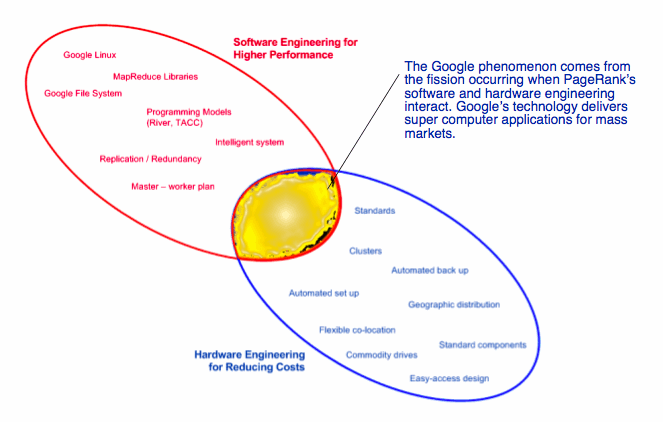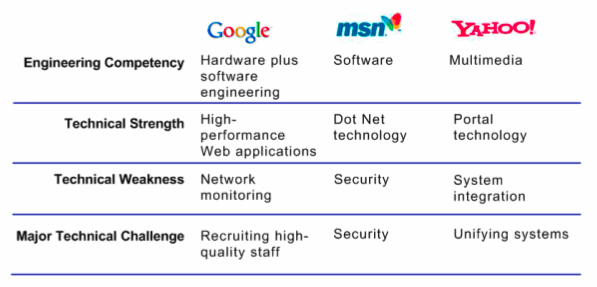Umberto Eco on books
From Umberto Eco’s “Vegetal and mineral memory: The future of books” (Al-Ahram Weekly: 20—26 November 2003):
Libraries, over the centuries, have been the most important way of keeping our collective wisdom. They were and still are a sort of universal brain where we can retrieve what we have forgotten and what we still do not know. If you will allow me to use such a metaphor, a library is the best possible imitation, by human beings, of a divine mind, where the whole universe is viewed and understood at the same time. A person able to store in his or her mind the information provided by a great library would emulate in some way the mind of God. In other words, we have invented libraries because we know that we do not have divine powers, but we try to do our best to imitate them. …
First of all, we know that books are not ways of making somebody else think in our place; on the contrary, they are machines that provoke further thoughts. Only after the invention of writing was it possible to write such a masterpiece of spontaneous memory as Proust’s A la Recherche du Temps Perdu. Secondly, if once upon a time people needed to train their memories in order to remember things, after the invention of writing they had also to train their memories in order to remember books. Books challenge and improve memory; they do not narcotise it. …
YET IT IS EXACTLY AT THIS POINT that our unravelling activity must start because by hypertextual structure we usually mean two very different phenomena. First, there is the textual hypertext. In a traditional book one must read from left to right (or right to left, or up to down, according to different cultures) in a linear way. One can obviously skip through the pages, one—once arrived at page 300—can go back to check or re- read something at page 10—but this implies physical labour. In contrast to this, a hypertextual text is a multidimensional network or a maze in which every point or node can be potentially connected with any other node. Second, there is the systemic hypertext. The WWW is the Great Mother of All Hypertexts, a world-wide library where you can, or you will in short time, pick up all the books you wish. The Web is the general system of all existing hypertexts. …
Simply, books have proved to be the most suitable instrument for transmitting information. There are two sorts of book: those to be read and those to be consulted. As far as books-to-be-read are concerned, the normal way of reading them is the one that I would call the ‘detective story way’. You start from page one, where the author tells you that a crime has been committed, you follow every path of the detection process until the end, and finally you discover that the guilty one was the butler. End of the book and end of your reading experience. …
Then they are books to be consulted, like handbooks and encyclopaedias. Encyclopaedias are conceived in order to be consulted and never read from the first to the last page. …
Hypertexts will certainly render encyclopaedias and handbooks obsolete. Yesterday, it was possible to have a whole encyclopaedia on a CD-ROM; today, it is possible to have it on line with the advantage that this permits cross references and the non-linear retrieval of information. …
Books belong to those kinds of instruments that, once invented, have not been further improved because they are already alright, such as the hammer, the knife, spoon or scissors. …
TWO NEW INVENTIONS, however, are on the verge of being industrially exploited. One is printing on demand: after scanning the catalogues of many libraries or publishing houses a reader can select the book he needs, and the operator will push a button, and the machine will print and bind a single copy using the font the reader likes. … Simply put: every book will be tailored according to the desires of the buyer, as happened with old manuscripts.
The second invention is the e-book where by inserting a micro- cassette in the book’s spine or by connecting it to the internet one can have a book printed out in front of us. Even in this case, however, we shall still have a book, though as different from our current ones as ours are different from old manuscripts on parchment, and as the first Shakespeare folio of 1623 is different from the last Penguin edition. Yet, up to now e-books have not proved to be commercially successful as their inventors hoped. … E-books will probably prove to be useful for consulting information, as happens with dictionaries or special documents. …
Indeed, there are a lot of new technological devices that have not made previous ones obsolete. Cars run faster than bicycles, but they have not rendered bicycles obsolete, and no new technological improvements can make a bicycle better than it was before. The idea that a new technology abolishes a previous one is frequently too simplistic. Though after the invention of photography painters did not feel obliged to serve any longer as craftsmen reproducing reality, this did not mean that Daguerre’s invention only encouraged abstract painting. There is a whole tradition in modern painting that could not have existed without photographic models: think, for instance, of hyper-realism. Here, reality is seen by the painter’s eye through the photographic eye. This means that in the history of culture it has never been the case that something has simply killed something else. Rather, a new invention has always profoundly changed an older one. …
The computer creates new modes of production and diffusion of printed documents. …
Today there are new hypertextual poetics according to which even a book-to-read, even a poem, can be transformed to hypertext. At this point we are shifting to question two, since the problem is no longer, or not only, a physical one, but rather one that concerns the very nature of creative activity, of the reading process, and in order to unravel this skein of questions we have first of all to decide what we mean by a hypertextual link. …
In order to understand how texts of this genre can work we should decide whether the textual universe we are discussing is limited and finite, limited but virtually infinite, infinite but limited, or unlimited and infinite.
First of all, we should make a distinction between systems and texts. A system, for instance a linguistic system, is the whole of the possibilities displayed by a given natural language. A finite set of grammatical rules allows the speaker to produce an infinite number of sentences, and every linguistic item can be interpreted in terms of other linguistic or other semiotic items—a word by a definition, an event by an example, an animal or a flower by an image, and so on and so forth. …
Grammars, dictionaries and encyclopaedias are systems: by using them you can produce all the texts you like. But a text itself is not a linguistic or an encyclopaedic system. A given text reduces the infinite or indefinite possibilities of a system to make up a closed universe. If I utter the sentence, ‘This morning I had for breakfast…’, for example, the dictionary allows me to list many possible items, provided they are all organic. But if I definitely produce my text and utter, ‘This morning I had for breakfast bread and butter’, then I have excluded cheese, caviar, pastrami and apples. A text castrates the infinite possibilities of a system. …
Take a fairy tale, like Little Red Riding Hood. The text starts from a given set of characters and situations—a little girl, a mother, a grandmother, a wolf, a wood—and through a series of finite steps arrives at a solution. Certainly, you can read the fairy tale as an allegory and attribute different moral meanings to the events and to the actions of the characters, but you cannot transform Little Red Riding Hood into Cinderella. … This seems trivial, but the radical mistake of many deconstructionists was to believe that you can do anything you want with a text. This is blatantly false. …
Now suppose that a finite and limited text is organised hypertextually by many links connecting given words with other words. In a dictionary or an encyclopaedia the word wolf is potentially connected to every other word that makes up part of its possible definition or description (wolf is connected to animal, to mammal to ferocious, to legs, to fur, to eyes, to woods, to the names of the countries in which wolves exist, etc.). In Little Red Riding Hood, the wolf can be connected only with the textual sections in which it shows up or in which it is explicitly evoked. The series of possible links is finite and limited. How can hypertextual strategies be used to ‘open’ up a finite and limited text?
The first possibility is to make the text physically unlimited, in the sense that a story can be enriched by the successive contributions of different authors and in a double sense, let us say either two-dimensionally or three-dimensionally. By this I mean that given, for instance, Little Red Riding Hood, the first author proposes a starting situation (the girl enters the wood) and different contributors can then develop the story one after the other, for example, by having the girl meet not the wolf but Ali Baba, by having both enter an enchanted castle, having a confrontation with a magic crocodile, and so on, so that the story can continue for years. But the text can also be infinite in the sense that at every narrative disjunction, for instance, when the girl enters the wood, many authors can make many different choices. For one author, the girl may meet Pinocchio, for another she may be transformed into a swan, or enter the Pyramids and discover the treasury of the son of Tutankhamen. …
AT THIS POINT one can raise a question about the survival of the very notion of authorship and of the work of art, as an organic whole. And I want simply to inform my audience that this has already happened in the past without disturbing either authorship or organic wholes. The first example is that of the Italian Commedia dell’arte, in which upon a canovaccio, that is, a summary of the basic story, every performance, depending on the mood and fantasy of the actors, was different from every other so that we cannot identify any single work by a single author called Arlecchino servo di due padroni and can only record an uninterrupted series of performances, most of them definitely lost and all certainly different one from another.
Another example would be a jazz jam session. … What I want to say is that we are already accustomed to the idea of the absence of authorship in popular collective art in which every participant adds something, with experiences of jazz-like unending stories. …
A hypertext can give the illusion of opening up even a closed text: a detective story can be structured in such a way that its readers can select their own solution, deciding at the end if the guilty one should be the butler, the bishop, the detective, the narrator, the author or the reader. They can thus build up their own personal story. Such an idea is not a new one. Before the invention of computers, poets and narrators dreamt of a totally open text that readers could infinitely re-compose in different ways. Such was the idea of Le Livre, as extolled by Mallarmé. Raymond Queneau also invented a combinatorial algorithm by virtue of which it was possible to compose, from a finite set of lines, millions of poems. In the early sixties, Max Saporta wrote and published a novel whose pages could be displaced to compose different stories, and Nanni Balestrini gave a computer a disconnected list of verses that the machine combined in different ways to compose different poems. …
All these physically moveable texts give an impression of absolute freedom on the part of the reader, but this is only an impression, an illusion of freedom. The machinery that allows one to produce an infinite text with a finite number of elements has existed for millennia, and this is the alphabet. Using an alphabet with a limited number of letters one can produce billions of texts, and this is exactly what has been done from Homer to the present days. In contrast, a stimulus-text that provides us not with letters, or words, but with pre-established sequences of words, or of pages, does not set us free to invent anything we want. …
At the last borderline of free textuality there can be a text that starts as a closed one, let us say, Little Red Riding Hood or The Arabian Nights, and that I, the reader, can modify according to my inclinations, thus elaborating a second text, which is no longer the same as the original one, whose author is myself, even though the affirmation of my authorship is a weapon against the concept of definite authorship. …
A BOOK OFFERS US A TEXT which, while being open to multiple interpretations, tells us something that cannot be modified. … Alas, with an already written book, whose fate is determined by repressive, authorial decision, we cannot do this. We are obliged to accept fate and to realise that we are unable to change destiny. A hypertextual and interactive novel allows us to practice freedom and creativity, and I hope that such inventive activity will be implemented in the schools of the future. But the already and definitely written novel War and Peace does not confront us with the unlimited possibilities of our imagination, but with the severe laws governing life and death. …
Umberto Eco on books Read More »



